Let’s start off with one of the most important facts of this entire blog post. According to the AP Style Guide, the acronym for the United States is “U.S.” with periods; the acronym for the European Union is “EU” with no period. Not sure why there are no periods in EU (socialism?), but I’d hate for any of you to be embarrassed by improper punctuation. And yes, the reason I was hired as WCIT Policy & Communications Director is that I’m a huge grammar nerd…
The point of all of this, of course, is that Tuesday’s State of the Union contained a major (and much anticipated) trade announcement: that the U.S. will officially launch talks on a “comprehensive Transatlantic Trade and Investment Partnership with the European Union.”
Or, as we like to call it, a U.S.-EU free trade agreement. If done right and successfully (and punctuated correctly), this could be a tremendous opportunity for Washington employers.
To start, for you true trade nerds out there (not to be confused with grammar nerds), here’s what the Office of the United States Trade Representative has to say about the goals of such an agreement:
- Further open markets to grow the $459 billion in U.S. goods and services exports to the EU, our largest export market, which already supports an estimated 2.4 million well-paying American jobs.
- Strengthen rules-based investment to grow the world’s largest investment relationship. The United States and the EU already maintain a total of nearly $4 trillion in investment in each other’s economies, supporting nearly 7 million jobs.
- Tackle costly “behind the border” non-tariff barriers that impede the flow of goods and services trade.
- Seek to significantly cut the cost of differences in regulation and standards by promoting greater compatibility, transparency, and cooperation.
- Enhance cooperation on the development of rules and principles on issues of global concern, including on market-based disciplines for State-Owned Enterprises, combating discriminatory localization barriers to trade, and promoting the global competitiveness of small- and medium-sized enterprises.”
The reason that we’re excited about this idea is that the European Union is one of our state’s largest trading partners. In 2011 Washington state exported $8.9 billion worth of goods there, and EU member countries like Ireland, the UK, Germany and France were top destinations for Washington services exports – from software to tourism. Washington also benefits from European FDI; French, German, Dutch and British firms employ 39,800 Washington state residents. Overall, Europe and its population of over 500 million offers significant market opportunities for a variety of Washington’s retailers, manufacturers, service providers, and farmers, meaning that increased trade liberalization has the potential to expand bilateral trade and investment opportunities, creating jobs and growing businesses both in Washington and in Europe.
That’s the good news. Where it gets hard is that the easy stuff is already done. Trade between the U.S. and the EU is already pretty strong – in fact it accounts for 30% of world trade –so any new trade deal will have to go above and beyond. While there are still some tariffs and quotas to eliminate or reduce, the real opportunities are things like increasing regulatory compatibility and eliminating or reducing non-tariff barriers like EU regulations that prevent U.S. exports of genetically-modified foods. Meanwhile products such as pharmaceuticals are subject to costly tests both in the EU and the U.S., and let’s not even start on the whole issue of aerospace subsidies that might need to be addressed in an agreement like this. We need to make sure that Washington retailers, farmers, manufacturers and IT companies don’t have to sacrifice so much on issues ranging from privacy protections to data flows that the agreement actually makes things worse than they are now.
The point is, despite everyone’s best intentions, it is going to take some difficult decisions that will cause consternation on both sides of the ocean to truly get a meaningful, impactful and mutually beneficial agreement done. But hey, no reason not to be optimistic, right? Anything that could mean more business for Washington employers, more European employers hiring Washington residents, and more (and lower priced) European goods (fromage de chevre, anyone?) in our stores is worth shooting for! In the meantime, look forward to more (grammatically correct) updates on this trade policy issue in the year ahead. And feel free to leave any AP Style guide questions in the comment section.

